Insurance Solutions
Our Insurance Solutions practice group exists to service the insurance industry (or anyone in the insurance space) for its purposes anywhere in the world. Insurance Solutions exists to solve the most complex problems for the insurance industry – be they litigation, transactional or regulatory. Our group has deep experience in coverage advice, litigation of “bet-the company” cases, policy formation and review, insurance program structure, reinsurance, regulatory issues, and transactional aspects of insurance, such as mergers and/or portfolio transfers.
Insurers often face perception issues and the necessity to explain procedures. From the onset, insurers face-off against the adage “if you are explaining, you are losing.” Our lawyers understand that in every representation they have the job of humanizing and facilitating understanding of the insurance industry. Our lawyers accomplish this by:
Considering it an obligation to stay current and provide regular thought-leadership through both publication and speaking. For example, we have authored multiple parts of the renowned Appleman on Insurance treatise and serve as an editors of the Reinsurance Professional’s Deskbook;
Believing it is an obligation to be involved IN the industry and bring opportunities TO our clients. For example, attending events like the Reinsurance Rendezvous and the National Association of Insurance Commissioners to understand client business needs and facilitate meetings among clients with similar interests;
Being leaders in legal and insurance organizations at the state, national, and international level. For example, serving on the Board of Directors for the Defense Research Institute and Defense Association of New York;
Being credible by being acknowledged at the top their profession by accepted ranking authorities. For example, having a lawyer ranked as the top US Insurance and Reinsurance Lawyer by Lawyer Monthly magazine, and others ranked by Who’s Who, Martindale-Hubbell, and Super Lawyers.
Having top-shelf practitioners who see the big picture but understand the details like:
identifying key policy provisions to ensure consistency across multiple claims; or,
applying procedural nuances such as removal and improper joinder;
No one can deny that in today’s economic climate every decision is looked at with close scrutiny and examined three times over to see if a risk assumed by one party can be passed to another. The focus on “getting it right” requires getting the right insurance counsel. We are that counsel.
Advertising Offenses: Personal and Advertising Injury
We have vast experience with advertising coverage issues. We have keen understanding of enumerated offenses and distinguishing the duty to defend versus duty to indemnify. In addition to understanding the coverage at issue, our team has intimate understanding of underlying advertising offenses, such as unfair competition; copyright infringement; misappropriation of advertising ideas or style of doing business; Lanham Act claims; and, whether oral or written publication that violates a person’s right of privacy. In every claim, we examine the causation requirements between advertising and alleged offenses. We also assess applicable exclusions such as breach of contract; intentional distribution of false materials; intellectual property; and, electronic communications.
Appellate Advocacy
The appellate outcome of insurance matters is equally important to the outcome of a trial or lower court proceeding. Appeals often have precedent setting significance with impact far beyond a single matter. Success at the appellate level requires different skills than those applied at trial. It is important to understand the appellate bench, and the perfection of the record.
Our lawyers’ analytical, writing, and oral advocacy skills are honed for success on appeal. Our lawyers have served as judicial law clerks to trial and appellate court judges, providing insight into the working of the priorities and decision-making of the bench.
Our Insurance Solution lawyers work closely with our Appellate Practice Group – teaming together to often parachute into matters handled by separate trial counsel. We are regularly sought in this regard to serve as appellate monitoring counsel during trial. Clients also engage us to write amicus curiae briefs, and to work with other trial counsel to ensure that insurance matters are properly postured for appeal.
Asbestos, Pollution and Health Hazard (APH), Mass Torts and Environmental
Environmental claims arise out of a variety of sources, including: large-scale environmental loss; contained pollution events; toxic tort; or, manufacturing liability. The claims may consist of both first and third-party property loss, as well as personal injury. Often the loss revolves around a policyholder’s key operations. A lawyer involved in the insurance issues related to these matters must appreciate the various unique origins and types of damages. Our lawyers believe in spotting issues horizontally and vertically for such matters. We apply multi-jurisdictional know-how of issues such as trigger, exhaustion, occurrence, allocation, damages, ultimate net loss, pollution exclusions, notice, and waiver, to name a few. We bring additional skill to these matters tying in practical familiarity of applicable state statutes, as well as CPSC, CERCLA, and RCRA. We have represented clients in matters concerning hazardous substance release from one property to another; the release of pollutants from manufacturing operations; and the contamination of navigable waters and groundwater.
Environmental and toxic tort claims involve complex insurance issues usually spanning multiple years or decades. These matters often involve many different policies issued by many insurers – some who may no longer be in existence or who may have been acquired. We comprehend the intricacies of these claims. When necessary, we employ insurance archeologists to help find lost polices or deciphers uncovered years.
Our Insurance Solutions lawyers who focus on environmental issues work closely with team members in our Toxic Tort and Environmental Practice Group.
Bad Faith, Extra-Contractual, Deceptive Business Practices and Punitive Damages
A successful defense of bad faith requires a lawyer that is able to visualize the entire case through closing arguments to a jury. Day one, counsel should be speaking with corporate witnesses, understanding underwriting issues, and dissecting each claim aspect. If an expert is needed, then this assessment should occur early. In addition to these pre-requisites, our lawyers come well-armed with motions for removal, standing, bifurcation and exclusions of proof – all with the goal of tackling allegations of bad faith one piece at a time. In addition, we understand that applicable constitutional defenses are often key to defending against punitive damages. One of our lawyers has authored a key chapter entitled “Discovery in Insurance Coverage and Bad Faith Disputes,” for the Insurance Law Practice treatise published by the New York State Bar Association. Our lawyers are at the cutting edge of current issues, including the use of disruptive technology, the Internet of Things and drones in underwriting and claims handling.
Business and Supply Chain Interruption
With the evolution of technology and society, we have seen a drastic change in the movement of goods and resources between countries. We have advanced from the days of trading silk and spices via ancient land routes to a global system that sends raw materials and finished goods across the world by land, sea and air. It is against this backdrop that our experience has developed for insurance products related to business interruptions, including those related to supply chain for components and commodities.
Traditionally, companies have attempted to lower their risk or exposure of supply chain interruptions by procuring Business Interruption coverage or Contingent Business Interruption coverage (CBI). Business Interruption (BI) coverage is generally contingent upon actual physical damage to the commodity or cargo. CBI provides similar coverage to the extent the loss is caused by a covered peril. BI coverage, however, is not necessarily responsive to the variety of perils that can affect the global supply chain system. In light of the emerging global supply chain system, there is clearly a market for transferring the risk of financial losses that result from an interruption of the supply chain that do not result from physical loss. As a result, carriers have begun underwriting Trade Disruption coverage. Typically, Trade Disruption Insurance (TDI) provides coverage for economic damages that result from a disruption of the global supply chain. The intent is to transfer the risk of financial losses sustained by the policyholder in the event of delay, or outright break, in the supply chain. While BI or even CBI coverage is generally triggered by an actual physical loss, coverage under TDI is triggered by the occurrence of a named peril.
Having counsel that understands the interplay between BI, CBI and TDI is key to properly assessing vulnerability to an interruption in the global supply system and, in turn, properly transferring risk. Our team has helped established new programs in this arena, and has also litigated these matters through trial and arbitration.
Our Insurance Solutions lawyers who focus on business interruption issues work closely with team members in our Commercial and Corporate Practice Group.
Class Action Defense
Achieving success in class action matters requires strategy for early dismissal, defeating class certification, Rule 23(f) appeals of class certification decisions, and precluding plaintiffs’ expert witnesses. This strategy must work backwards from the desired result to be successful. We understand the constantly evolving standards for class certification in the insurance arena. We have been able to convince parties and courts that certification must be denied. In this regard, we understand that class actions can often be favorably resolved with a comprehensive and irrevocable settlement. Often, carefully negotiated settlements of class actions are true “wins” in that they avoid years of litigation cost, uncertain risk and potential reputational harm. We also recognize the need for coordinated strategy against the setting of regulatory inquiry, government action, or criminal prosecutions.
Construction Insurance
Our vast experience with construction losses causes clients to seek our counsel in construction property and liability losses. Insurance issues are unique among general contractors, prime contractors, sub-contractors, sub-sub-contractors, construction managers, owners, developers, architects and engineers. We understand the traditional and bespoke insurance structures surrounding construction. Additional insured and contractual indemnity issues often intertwine in a risk shifting analysis. Ensuring proper reservations of rights on “arising out of” issues is often key. We comprehend complex issues surrounding construction defect, Wrap and OCIP policies, as well as the impact of completed operations. One of our lawyers is the author of a key chapter on construction insurance loss and risk shifting entitled “Labor Law and Construction: Insurance Coverage and Indemnity Unveiled” for The Labor Law Handbook published by the New York State Bar Association. Our experience extends to counseling clients on risk avoidance in construction programs.
Our Insurance Solutions lawyers who focus on construction issues work closely with team members in our Construction Practice Group.
Corporate Crimes and Fidelity Bonds
Claims by financial institutions and corporate bondholders require successful strategies to defend financial institution bonds, fidelity bonds and crime policies. Our experience includes computer fraud, employee dishonesty, embezzlement, account manipulation, fund misdirection, check-kiting, ponzi schemes, and improper wire transfers. We represent excess insurers and reinsurers on these matters including liquidation of cedants and primary insurers. Our lawyers have successfully defended catastrophic safe deposit box losses arising out of Hurricane Katrina and Superstorm Sandy.
Our Insurance Solutions lawyers who focus on corporate insurance issues work closely with team members in our Commercial and Corporate Practice Group.
Contingency Insurance
We offer our clients a broad spectrum of legal services in the contingency insurance arena. Our lawyers assist the insurance industry on program and policy issues arising out of film/media production, event cancellation, event non-appearance, contest indemnity, personal accident, and event liability. Due to our experience in this area, our clients often seek our counsel with bespoke contingency wordings.
Cyber and Technology Insurance
Companies of all sizes, both in the United States and abroad, have experienced cyber security issues. These issues involve inadvertent data loss, as well as criminal cyber attacks with hazards including data breaches and ransomware. The effects of cyber security issues can be broad and far-reaching, implicating multiple insurance policies. We advise clients on a numerous risks arising from cyber and privacy. These include coverage for data breaches, data loss, and data restoration claims.
While cyber insurance policies are popular, evaluating policy language carefully is key in any loss. For example, a loss involving an employee tricked into wiring money into the wrong bank accounts may not be covered. Policies often excluded coverage for losses caused, even in part, by an authorized user’s entry of electronic data into the company’s computer system. Many policies define a “Privacy Injury” as an injury suffered by a person whose information has been compromised. As a result, there may be no Privacy Injury, and no coverage if an insured reimburses a third party for fraud claims.
Several cyber insurance policies have “first-party cyber” coverage, but relatively few companies purchase the coverage because of the long waiting period, inability to address outsourcing and offshoring, and the narrow causes of loss. Our lawyers understand the many different forms of cyber coverage and have handled matters addressing the scope of cyber cover.
Our Insurance Solutions lawyers who focus on cyber and technology insurance issues work closely with team members in Professional Liability and Cyber, Technology and Social Media Practice Groups.
Directors & Officers and Financial Services Insurance
Understanding the interplay of Side A, Side B and Side C triggers is only the first step in D&O coverage. We represent domestic and foreign underwriters, as coverage and monitoring counsel, on claims under director and officer liability insurance. Due to the fact the D&O often involves covered and non-covered claims, allocation and erosion of the policy is an issue best addressed early. Unlike many other types of insurance, the broker often plays a much a larger role in these claims and it is important to have counsel that understands how to interact with this additional claim dimension. It is also significant to have counsel that has experience understanding the underlying claims, including SEC investigations and class actions. Our team looks at the totality of the claim, including all underlying claims. We look to foster a working relationship with the insured and broker, where appropriate, while asserting policy defenses as required.
Our Insurance Solutions lawyers who focus on directors and officers insurance issues work closely with team members in our Professional Liability Practice Group.
E-Discovery
Our Insurance Solutions lawyers advise clients in developing pre-litigation policies and procedures. We counsel clients on implementing effective technologies to manage and dispose of data defensibly and consistently with emerging best practices. Our team also advises on preserving documents and data effectively where there is a duty to preserve. We work with clients to explain defensible disposal before a duty to preserve arises. Once a duty to preserve arises, we work hand-in-glove with clients on legal holds and their scope. Our managing partner, John Jablonski, is nationally recognized in this arena. He is the Editor of Arkfield’s Best Practices Guide for Legal Holds, and the former chair of the Defense Research Institute’s E-Discovery Committee.
Employment Practices Liability Insurance
Our team has extensive experience with Employment Practices Liability Insurance (EPLI). We have litigated coverage issues concerning claims or lawsuits filed by employees, former employees and employment candidates regarding their employment relationship with an employer. It is not uncommon for these policies to have issues that arise concerning trigger of a claim, scope of coverage, selection of counsel and consent to settle.
We understand what EPLI covers and what is does not. Typically, EPLI insures against claims of discrimination (based on age, sex, race, religion, color and national origin), sexual harassment claims, wrongful termination (including constructive discharge and retaliatory discharge), infliction of emotional distress and breach of contract, violation of the Family Medical Leave Act or other leave laws. However, EPLI policies typically exclude coverage for claims involving wage and hour laws, ERISA, WARN acts, unemployment benefits, COBRA, breach of contract and claims pursuant to the National Labor Relations Act. EPLI policies do not usually cover criminal fines, civil fines, penalties or punitive damages. They also generally exclude claims for bodily injury and property damage, because there are other types of policies that an employer can purchase which cover those claims. Liability for acts involving intentional wrongdoing is also generally excluded by many EPLI policies. Most policies cover claims for emotional distress or mental anguish associated with covered losses. We have decades of experience with policy interpretation and application of these terms and issues.
Our Insurance Solutions lawyers who focus on employment issues work closely with team members in our Employment and Labor Practice Group.
Energy and Utility Insurance
Our team has been involved in insurance assessment and litigation involving some of the largest energy and utility companies in the world. We have been consulted on and litigated issues from the BP Oil Spill to the Kingston Tennessee Valley Coal Ash Release. We have mitigated large losses and shifted risk arising out of solar, wind and traditional energy infrastructure losses. We have lectured all over the globe on issues from offshore losses to fracking-related claims. We understand the complexities of offshore physical damage insurance as it applies to physical loss or damage to fixed offshore drilling, production and accommodation facilities as well as mobile drilling rigs such as jack-ups, semi-submersibles and drill ships. We have guided clients through Operator’s Extra Expense (Control of Well) Insurance related to regaining control of an offshore or onshore well “blowout”, including re-drilling expenses and seepage, pollution emanating from the blowout.
Our team knows that coverage disputes among carriers arise as losses develop. We believe in early assessment of issues related to pollution exclusions and affirmative pollution coverage. And, like many massive disasters, the energy industry deals with potential fraudulent claims and those set on taking advantage of a bad situation.
Expert Opinion
When it comes to complex insurance policy interpretation, and alleged bad faith, expert opinion is often needed to clarify policy wording, amplify underwriting intent, or explain claims-handling conduct. Several senior partners on our team have offered expert opinion and testimony throughout the world. As authors of some of the most distinguished treatises on insurance, our lawyers are uniquely qualified to serve in this capacity.
First-Party Catastrophic Property Losses
First party cases require early gathering of information and expedited assessment of all relevant evidence. We ensure these matters are properly staffed and resourced to eliminate “surprise” in the claim process. We guide our clients through consistent policy interpretation using our experience with policy language; the interplay, and differences, between all-risk coverage, named peril coverage, and coverage exclusions; the importance of covered property provisions; and the impact certain policy endorsements have on coverage. Our lawyers have represented represent clients all over the world on some the largest recent disasters from Superstorm Sandy to 9/11 to the Kingston Coal Ash Release. We have authored a seminal chapter entitled “Calculating the Amount of Loss in Property Damage Claims,” in the New Appleman on Insurance Law Library Edition. Our clients have sought our guidance for first-party loss related to:
Arson
Fraud
Theft
Hurricanes
Mudslides
Man-made disasters
Terrorist attacks
Collapse
Faulty workmanship in construction and design
Water damage and flood
Hail and windstorm damage
Appraisals
Business interruption
Insurance Fraud
Fraud can occur during policy inception, as a scheme integral to the claim itself, or as part of post-loss claim enrichment. We collaborate with clients at each stage and offer early identification and resolution. We work “hand-in-glove” with insurer Special Investigation Units (SIU) to investigate and uncover insurance fraud. We believe success requires a lawyer to understand the interplay of criminal, civil and administrative aspects of fraud. We practice a proactive approach to fraud from examinations under oath to affirmative litigation aimed at preventing premium fraud, recoupment for previously paid claims, and rescission.
Our lawyers have achieved successful fraud verdicts in multiple jurisdictions, including affirmative recoveries. We are often asked to work with our clients to develop and implement anti-fraud training and programs.
International Insurance Issues
The international insurance market presents unique issues. Bespoke policies, high-level excess, and surplus lines all present different challenges. One of the most common challenges is a knowledge gap by judges, juries and regulators of how the international market works and what products our intended to cover. Our lawyers understand that it is their job to bridge this “gap” and then resolve the true issues in our client’s favor. We have spoken and written extensively on subscription and quota share policies. Our lawyers have authored a seminal chapter for understanding Lloyds of London in litigation pending in the United States. Lloyd’s in the United States,” Ch. 80, New Appleman on Insurance Law Library Edition, 2016. We have represented clients from insurance markets all over the world and have been asked to speak on insurance issues from Asia to Bermuda and all over Europe. Our lawyers are fluent in many different languages, and one of our insurance practitioners is a Registered Foreign Lawyer in England and Wales.
Kidnap and Ransom
The scope of coverage for kidnap and ransom varies widely from policy to policy. Coverage disputes arise from a large swath of issues. Our lawyers appreciate the nuances of these policies and have achieved successful resolution in a number of forums. Who is “insured” is often an issue that arises under this type of coverage. Whether someone is a covered director, officer or employee is usually based upon disclosure during underwriting and the facts of each claim. Additionally, some policies provide worldwide coverage, whereas others exclude coverage for kidnappings in certain specified regions. Where a kidnapping begins may not be where it ends, often leading to the need for policy interpretation. Our lawyers involved themselves in all aspect of the claim process to be in a position to guide our clients through these difficult claims in “real time.”
These policies have stringent notice requirements which if not followed can often prejudice an insurer. Many kidnap and ransom policies void coverage if policyholders fail to immediately provide notice of a kidnapping to both the insurer and local law enforcement agencies. Such a provision may seem relatively uncontroversial. However, this notice obligation can prove problematic in instances where the kidnapper forbids policyholders from notifying local police or other authorities. Our lawyers have experience working under the stress of the difficult circumstances surrounding kidnapping and finding practical solutions.
Life, Health Disability and ERISA
Life, Health and Disability insurance coverage presents distinct issues that requires distinct experience. Many lawyers dabble in this area, but ours are nationally recognized for their experience. We have decades of experience defending insurers and plan administrators throughout the United States. One of our lawyers has served as chair of DRI’s Life, Health & Disability Committee. We appreciate the key differences between personal policies and group plans, and look to apply ERISA preemption wherever applicable. This includes ensuring that discovery is limited to the record. In the regulatory arena, we have vast experience representing clients on market conduct examinations, filings and other compliance items. Our lawyers include an author of the Life Insurance chapter in the New Appleman on Insurance Practice Guide, as well as an author of the Life Insurance Fraud in New Appleman on Insurance 3d Edition. We also have lawyers who have served as an editor of the American Bar Association’s treatise entitled ERISA Survey of Federal Courts. Our lawyers know that focus is keen in these matters. Some examples of our experience includes:
Life Insurance – understanding beneficiary issues; foreign death schemes; and the latest developments on “accidental” death; stranger-owned life insurance (“STOLI”) disputes; premium financing litigation; interpleader; fraud
Health Insurance – payor issues; third-party determination and billings; HIPPA compliance; privacy issues; reporting issues
Disability Insurance – discretionary clause defenses; “own occupation” and “any occupation” determinations; ensuring courts apply the appropriate standard of review
Regulatory issues and associated litigation
Unique issues surrounding travel insurance
Class Actions premised on sales practices
Political Risk Insurance
Political risk claims are, by their nature, complex, requiring detailed assessment and a thorough understanding of the insured’s dealings with the foreign government. Any lawyer involved is such matters must understand that cooperation from the insured goes a long way to helping claim assessment and resolution.
As with all insurance, political risk insurance is not an unconditional guarantee, and has limitations. It is a challenge during policy inception and underwriting to describe a risk with sufficient particularity to enable identification of the range of sovereign actions for which cover is provided, while still retaining language that is sufficiently broad to ensure that all intended triggers are captured. There can be subjectivity regarding trigger of the policy. Often there is confusion about the scope of coverage.
As with most insurance, political risk policies contain requirements that the insured does not do anything to prejudice insurers’ recovery rights – if a claim is paid, insurers may wish to be able to pursue the State for recovery. This does not mean that an insured is unable to engage in reasonable discussions with the State. Treaty rights are a reliable way of ensuring a State complies with its obligations. Treaty rights are generally enforced through arbitration before the International Center for the Settlement of Investor Disputes (ICSID). ICSID is part of the World Bank, and there is an undeniable stigma associated with non-payment. Generally, awards do get paid — eventually. It is important to have counsel that understands the entire process and its intricacies.
Our political risk team works closely with our Commercial and Corporate Practice Group, as well as our commercial and reinsurance arbitration teams. Our transactional knowledge, combined with breadth of our experience in insurance matters, empowers our clients to resolve political risk insurance disputes successfully.
Professional Liability Insurance
Our lawyers have in-depth experience with the complexities of professional liability policies. We appreciate that professionals, like other business owners, face a wide variety of liability risks, some ordinary and common to all businesses, and others extraordinary. These risks include: bodily injury; property damage; financial losses suffered by clients and non-clients; wrongful termination; harassment and retaliation suffered by employees; defamation claims; copyright, patent and trademark infringement claims; civil rights claims; and in the case of public companies, securities claims.
As claims involving professional services are typically excluded under general liability policies, professionals often purchase separate professional liability coverage. Although general liability and professional liability policies are designed to insure different risks, it is sometimes difficult to determine whether a particular claim implicates the general liability coverage or the professional liability coverage. On occasion, some claims conceivably trigger coverage under both general liability and professional liability policies.
Our team has extensive experience with traditional professional liability policies for doctors, lawyers, accountants, architects, engineers, and insurance agents/brokers. More distinguishing, our lawyers have depth with newer policies covering everything from advertising agencies and web hosting companies to wedding planners. Whether a claim is covered under a professional’s general liability policy, professional liability policy, or both, may have significant implications for the insured and insurer. Often, the two types of coverage are subject to different coverage triggers. Moreover, one policy may offer broader coverage terms than the other. Professional liability policies operate on a claims-made basis, covering only claims made during the policy period and not claims based on occurrence.
Our Insurance Solutions lawyers who focus on professional liability insurance issues work closely with team members in our Professional Liability Practice Group.
Public Officers and Governmental Liability Insurance
Public officials liability insurance is similar to directors and officers liability insurance and to professional liability insurance – however, it is designed specifically for officials and employees who work at various public agencies, authorities, commissions, or who serve on public boards. This insurance is designed to address allegations of wrongful acts committed in the course of work as a public official or employee. Coverage for employment practices liability insurance is often included.
Our lawyers have assisted clients in putting programs together in this space, and have successfully litigated coverage issues arising out of this type of insurance. Disputes may arise with a policyholder or its other general liability insurers over exclusions, which include: bodily injury; damage or destruction of any property; invasion of privacy; false arrest, detention or imprisonment; and dishonest, fraudulent, or criminal acts.
The coverage and exclusions provided in public officials liability insurance policies can vary greatly. Our lawyers work with our clients for early assessment and issuance of appropriate reservations of rights. We understand that raising appropriate policy exclusions early is important to ensure that there is no statutory preclusion, waiver or estoppel.
Our Insurance Solutions lawyers who focus on government-related insurance issues work closely with team members in our Municipal and Governmental Practice Group.
Regulatory, Transactional, and Program Structuring
Whether a matter involves regulatory filings and due diligence, market conduct investigations, or portfolio transfers, our team understands the need for excellence and credible communication in efficient resolution of insurance regulatory matters. We work proactively to keep an ongoing dialogue with insurance regulators around the world, even when not engaged on a particular matter. It is our belief that this is an investment in the future resolution of issues for our clients. We advise and guide our clients on corporate governance. We have worked closely with clients to establish assumption reinsurance, public and private financing, offshore structures, insurance-linked securities, etc. We have assisted in program development and the drafting of policy language, underwriting guidelines, and developing claims-handling procedures. We counsel on regulatory filings associated with formation and change of control (i.e., restructuring, conversion, redomestication, etc.). We handle all aspects of licensing matters, including company formation, admission, expansion, and redomestication. One of our lawyers is an editor of “Part V: Regulatory, Alternative Risk Transfers, and Other Recent Developments,” in the Reinsurance Professional’s Deskbook: A Practical Guide by Thomson Reuters. We have authored in the renowned New Appleman on Insurance with a chapter entitled “Mergers and Acquisitions Insurance.”
Our Insurance Solutions lawyers who focus on transactional and regulatory issues work closely with team members in our Commercial and Corporate Practice Group.
Reinsurance
Our lawyers have been involved in high profile reinsurance disputes and insurance company liquidation proceedings in the United States and overseas. We represent clients on all aspects of the reinsurance relationship, including contract drafting, broker/intermediary responsibilities and agency considerations, contract interpretation, audit management and control, litigation and alternate dispute resolution, commutation negotiations and protection of letters of credit. Our lawyers have helped our insurance and reinsurance clients with the leading industry issues of the last 30 years: asbestos, environmental, 9/11, finite risk, late notice, workers’ compensation and a host of problems associated with managing general agencies and pools. We have won good results for both cedents and reinsurers in fraud and rescission disputes, some involving hundreds of millions and even billions of dollars in dispute. We stay current with the arbitration community through regular networking and participation as faculty and attendees at ARIAS and RAA programs. Our reinsurance team includes an US-ARIAS Certified Arbitrator. We have authored several chapters on reinsurance issues in the renowned Appleman on Insurance. We have also served as an editor for The Reinsurance Professionals Deskbook by Thomson Reuters.
Retail and Hospitality Insurance
The retail and hospitality industry face unique risks from dram shop to premises liability. Retailers, restaurants and hotels are often charged with safekeeping of customer data and therefore exposed to cyber risks. Unpredictable circumstances may cause a disruption in the supply chain, a need for a recall of product, or the inability to utilize a premises resulting in an interruption of business. Often businesses in this space have a host of overlapping insurance coverage. Our lawyers appreciate which policies are triggered by a set of circumstance and bring decades of experience in successful insurance determination.
Our Insurance Solutions lawyers who focus on retail and hospitality insurance issues work closely with team members in our Retail, Food, Beverage and Hospitality Practice Group.
Reputational Harm and Intangible Loss Insurance
From reputation and computer system interruption to disruptions of outsourced functions, reputational risks impacting profit and expenses are often insured in a customized solution. Our lawyers know that these risks fall outside of traditional insurance because the cause of loss is not a physical event and does not result in physical injury or damage to tangible property. Rather than focusing on physical buildings or inventory, this insurance recognizes the real value of reputation, computer networks and intellectual property as a driver of revenue production and investment value.
Often a cause of loss under these programs is adverse media coverage affecting revenue or sales. The coverage is premised upon scenarios that a specific policyholder considers relevant in its own business operation. Examples include: a data breach; the disgrace of a celebrity endorsing products; key person disgrace; business partner disgrace such as bad practice or criminal activity of a supplier; breach of fair labor laws and environmental damage; loss of certification or accreditation; product safety or quality failure; or other perils as agreed in advance with the underwriter. Coverage issues often arise regarding disclosures and warranties made during the underwriting process of these policies. It is important that counsel handling these matters appreciate the underlying business, the risk it sought to ameliorate, and the insurer’s understanding of that risk as of the effective date of coverage.
Risk Transfer (Third-Party Insurance)
Generally speaking, parties to a contract require some form of indemnification from each other. For example, a manufacturer may indemnify its distributor and supplier or vice-versa. In fact, most commercial contracts include risk-shifting provisions that require (1) one party to defend and indemnify the other for claims arising from the actions or inactions of the indemnitor, and (2) to add a the indemnitee as an additional insured under the indemnitor’s general liability policy. Although distinct, the obligations go hand in hand—in both cases, liability is shifted from the indemnitee to the indemnitor’s insurer.
Of course, in this risk-shifting paradigm many additional issues arise. For example, what happens when one party to the contract becomes insolvent? Additionally, what are the implications to the parties when the indemnitor has chosen to have in place a significant self-insured retention or deductible? What are an insurer’s responsibilities to respond and protect insureds? Of course, not to be lost in this mix are the additional responsibilities placed upon defense counsel in the tripartite relationship.
In any multi-party/multi-claim/multi-insurer loss the roadmap to who pays first and next is often anything but clear. Clarity requires early assessment of all policies, additional insured endorsements, and contractual documents. Often a resolution is complicated by self-insured retentions, deductibles or solvency of the insured. Our lawyers have written seminal authorities on these issues. More importantly, they have been in the trenches advising clients on the nuance of when to litigate and when to negotiate these issues. We understand that no one wants surprises from coverage effecting or increasing the value of underlying claims.
Title Insurance
The standard title insurance policy contains an exclusion specifically meant to make sure the company does not become engaged in boundary line disputes. The language may refer, for example, to matters that “would be disclosed by an accurate survey and inspection of the premises.” Nonetheless, title insurers often find themselves confronted with a number of claims and insureds seeking coverage when no other recourse seems available. Our lawyers have experience in underlying title and property issues. We combine our knowledge of insurance disputes to bring about effective resolution of these claims.
Transportation Insurance
Knowledge of the subtle aspects and nuances of the transportation policies is key to successful outcomes in the transportation insurance arena. For example, in the maritime coverage arena, we have successfully litigated everything from complex cargo claims to exoneration actions.
Our team has decades of experience with aviation policy wording and losses. We have dealt with everything from the definition of “crew” in benefits after an aviation disaster to whether an aircraft has been seized by a foreign government or stolen by a lessee. Our lawyers are at the cutting edge of current issues, including coverage related to drone exposures, and claims handling with drones.
Our trucking and bus insurer clients trust us to ensure consistency of representation across the United States on cargo and liability claims. We often parachute into catastrophic trucking and bus losses to address primary/excess issues, limited insurance assets and self-insured retention issues – to name a few.
We have gained the confidence of multiple insurers to serve as national coverage counsel for transportation-related losses. Our Insurance Solutions lawyers who focus on transportation insurance issues work closely with team members in our Transportation Practice Group.


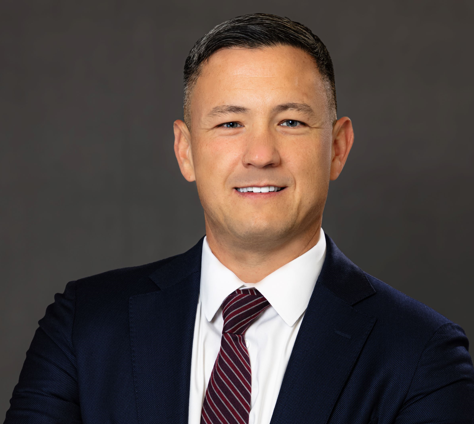


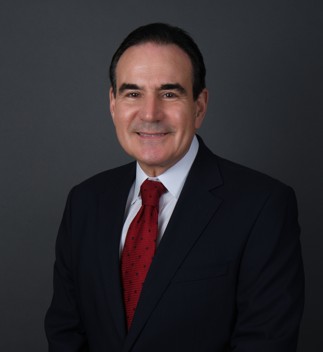




































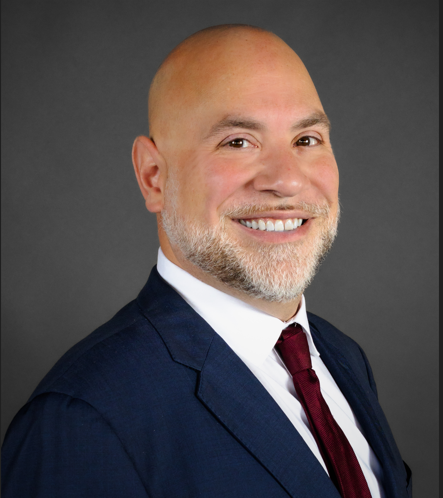



















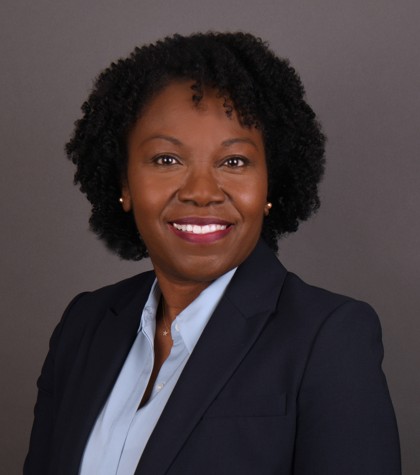







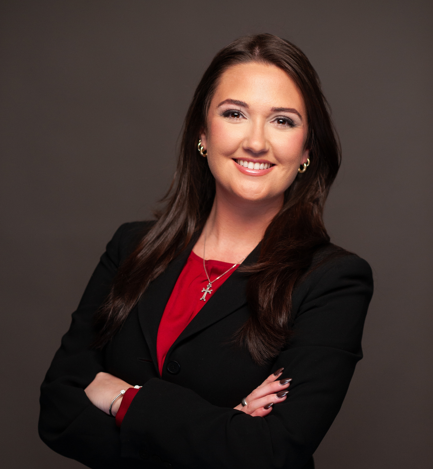






Public Owners Have Substantial Discretion in Determining the Lowest Responsible Bidder
In a recent decision, the Appellate Court reminded us that it is the lowest responsible bidder and not merely the bidder that submits the lowest price that shall be awarded

With Payment Bond Claims, Different Rules Apply to the Bond Claimant and the Surety
As previously discussed in this Blog, Conn. Gen. Stat. § 49-41 requires each general contractor on a public works projects valued over $100,000 to post a payment bond that guarantees

The Right to Arbitrate may be Waived if Opposing Party Suffers Prejudice
As discussed previously in this blog, arbitration is an alternative dispute resolution procedure, whereby the parties to a construction contract can agree to have their disputes heard by a private

Recent Decision Discusses Procedure for Challenging the Arbitrability of a Dispute
Arbitration is a private dispute resolution procedure that is intended to be more efficient and less expensive than a traditional court trial. In arbitration, a private individual or panel of

